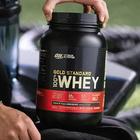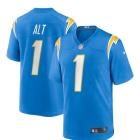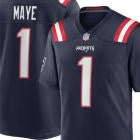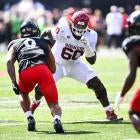
If you're trying to level up your health and fitness this spring, adding more protein to your diet is an essential way to build lean muscle. Supplementing your diet with extra protein could help you get closer to achieving your health goals.
There's a lot of information (sadly a lot of misinformation, too) on protein powder, not to mention thousands of protein powders that all seem to be the same at first glance. Deciphering it all can feel like a workout in and of itself.
We're here to help. We did a deep dive into all things protein powder. With our experts in tow, we're separating protein powder fact from fiction, and we're giving you our picks on which ones to buy. Keep reading for the best protein powders to add to your shaker bottle, followed by expert tips and insights into choosing and using the right protein powder for you.
The best-rated protein powders on Amazon
When it comes to choosing a protein powder, we looked for reviewer feedback on taste, the protein source and other ingredients. We considered price per serving and looked for industry leaders whose products earned at least four stars out of five.
Best protein powder overall: ON Gold Standard 100% Whey

Taste was a big factor in making the ON Gold Standard Whey Protein Powder a bestseller on Amazon. Delivering 24 grams of pure protein per serving, 5.5 grams of BCAAs and 11 grams of EAAs (Essential Amino Acids), Optimum Nutrition's Gold Standard is an anytime formula, meaning it can be taken before or after a workout, or anytime you need extra protein.
One reviewer after the next lauded the taste of this 4.7-star-rated protein powder, including a self-proclaimed picky eater who "LOVED IT!" (All caps in a review? We're listening.) It's also a taste-tested favorite of CBS Sports editor, Fox Van Allen, who recommends mixing it with peanut butter and lactose-free 2% milk instead of water for added protein after a workout.
$36 at AmazonBest vegan protein powder: Orgain Organic Protein
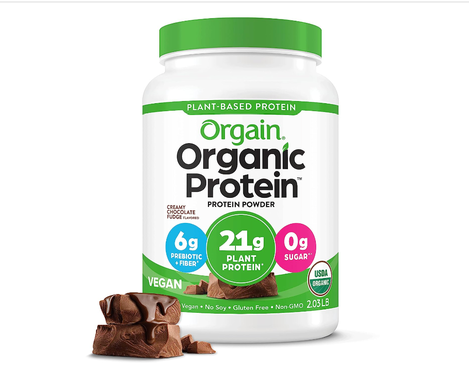
An industry leader and Amazon best-seller, Orgain's Organic Protein Powder delivers 21 grams (per serving) of organic, plant-based protein derived from peas, brown rice and chia seeds. Each serving of this vegan protein powder also delivers two grams of dietary fiber with zero grams of added sugar and 150 calories per serving.
USDA organic certified, this powder is also vegan and kosher as well as dairy and soy free. A 4.5-star rated protein powder, loyal buyers stated this powder "is a great product, deserves 5 stars."
$27 at AmazonBest on-the-go protein powder: Bare Bones Bone Broth

Sold as a bag of single-serving packets, Bare Bones Bone Broth is a convenient, easy way to get a boost of protein during your busy day. Simply rip open the packet and stir it into a cup of hot water. The warm, savory cup of broth you get as a result will not only deliver 10 grams of protein but feel comforting and satisfying at the same time.
Loaded with essential electrolytes like sodium and potassium, this protein powder also acts like a hydration multiplier.
In addition to the health benefits, reviewers raved about the unmatched taste. While some bone broth powders can be bland or even unpleasant, this one tastes like rich, flavorful beef broth (or chicken broth if you opt for that flavor).
The taste is so good, that many report using it in cooking. "I also use the powder as a flavor boost in soups & mashed potatoes," said one reviewer. The convenient, single-serving packaging that made them easy to take to work or the gym was also a hit with buyers.
You can get a 16-pack of single-serving sticks for $23 on Amazon.
$23 at AmazonBest protein powder for recovery: Garden of Life Sport

Boasting 30 grams of protein, this plant-based formula is a protein powerhouse. But what really makes it stand out is everything else you're getting along with the protein, including probiotics, amino acids and antioxidants. Taken all together, this protein powder helps support muscle growth, immune health and gut health at the same time.
Reviewers love the complete amino acid profile and the recovery boost they get from the probiotics and antioxidants. "This vegan supplement is clearly helping with muscle gain and health," said one reviewer, adding, "It also helps recover faster -- I'm not as sore from my workouts."
Get the two-pound tub on Amazon for $41.
$41 at AmazonEasiest to digest: Now Sports Pea Protein
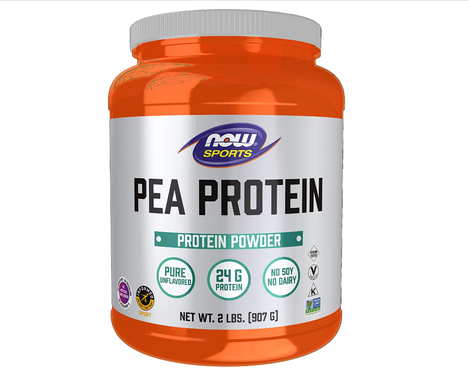
Consisting of pure pea protein, Now Sports vegan protein powder is a non-GMO vegetable protein isolate that delivers 24 grams of (promised) easily digestible protein. That's good news for those who find protein powders hard to digest. One scoop contains 24 grams of protein and typically contains over 4,200 mg of BCAA.
This powder's NPA A-rated GMP certification guarantees that every aspect of the brand's manufacturing and testing methods have been examined.
While the taste of vegan powders scored lower than the taste of whey powders, users who wanted a vegan option liked that this powder was a "great source of low-calorie" protein. Zero added sugars also scored big with buyers.
Get a two-pound tub of pure pea protein powder on Amazon for $25.
$25 at AmazonShop more protein powders on Amazon
- Delicious protein powder for drinking or baking: Premier Protein, 1 lb. tub, $25
- A protein powder and multivitamin in one: Ka'Chava Meal Replacement Shake, 2 lbs. bag, $80
- Boost muscle, joint and gut health: Ancient Nutrition Bone Broth Protein, 1 lb. tub, $44
- Best tasting vegan protein powder: Vega Original Vanilla Protein, 32 oz. tub, $25 (reduced from $29)
Do you need protein powder?
"Most people get the protein they need from food," Hillary Ake, a sports dietician who works with professional athletes, told us. "However, when you exercise, the working muscles go into protein breakdown mode, and sometimes even muscle breakdown and muscle damage, depending on the type of exercise.
"Replenishing protein after a workout can push the body back into muscle protein building mode, to help repair muscle damage and build muscle."
A 2018 study from the British Journal of Medicine shows that dietary protein supplementation (up to a maximum of 0.73 grams of protein per pound of body weight per day) significantly increased strength and muscle size in adults, especially those who participate in resistance training.
Alex Larson, a registered dietician nutritionist who works with endurance athletes, further explained the effectiveness of protein powders stating, "It depends on what purpose you're wanting the protein powder to serve," she said. "The research has shown eating protein, in combination with carbohydrates, after a workout is a great way to build and recover muscle. Protein powders are also a useful way for individuals needing to gain weight who struggle to eat larger volumes of food. While I always recommend getting protein from food first, protein powders can be a convenient source."
How to choose a protein powder
Larson suggests the first thing to look for in a protein powder is third-party testing, which "assures that what's listed on the package is actually what's in the product." Sound advice, but it's also important to understand the different types of protein powder. (The FDA doesn't currently regulate protein powders, which makes getting the right information even more important.)
There are two kinds of protein powders. Whey protein powders such as Optimum Nutrition's Gold Standard are derived from milk, while vegan options such as Orgain are derived from vegetarian sources such as peas, soy or hemp. While whey proteins are the most common, vegan options are effective (though they usually require higher doses).
There are two kinds of whey proteins, whey protein isolate and whey protein concentrate. Experts generally recommend a whey protein isolate powder, which is strained in a way that yields a higher percentage of protein and a lower percentage of lactose than a protein concentrate.
Athletes and exercise enthusiasts may opt for a protein powder with added carbohydrates. Ake suggests those looking for a protein powder with an added carbohydrate air for a "4:1 or 3:1 carb to protein ratio depending on your activity," while also stating endurance athletes will require more carbohydrates to replenish their body.
How much protein powder should I take?
When it comes to protein powder intake, the more active you are, the more protein you need. The average athlete should take between "1.2 - 2.0 grams of protein per kilogram body weight (0.5 - 0.9 grams per pound)," Larson says, while a sedentary adult should take 0.8 grams of protein per kilogram (0.36 grams per pound).
While protein powders are generally considered safe, Larson suggests anyone with kidney-related issues consult a doctor before using any protein powders.











